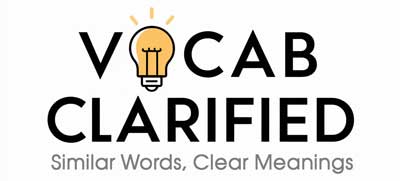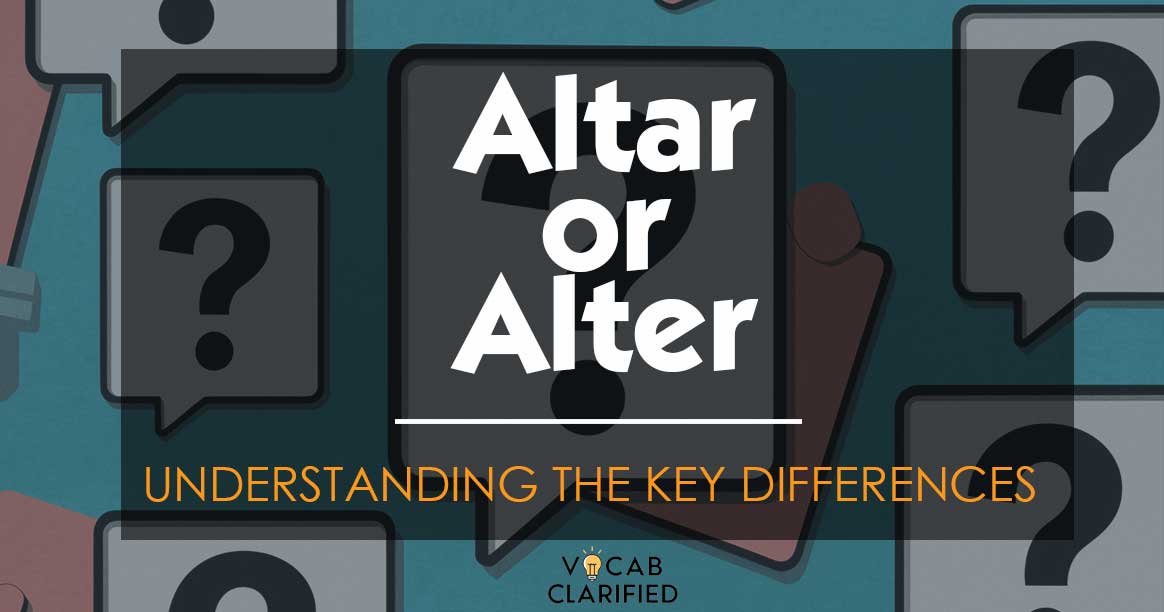Have you ever wondered whether to use “altar” or “alter” in a sentence? These two terms might sound similar, but they have very different meanings and are used in distinct contexts.
In this article, we are going to clarify the difference between “altar” and “alter” and help you determine when to use each term correctly.
Understanding Altar And Alter
Altar: Definition and Usage
“Altar” is a noun that refers to a structure used in religious ceremonies.
It is typically found in places of worship, such as churches or temples, where offerings, sacrifices, or other sacred rituals take place.
The term is deeply rooted in religious contexts and carries significant cultural and spiritual meanings.
Examples:
- The priest stood before the altar, preparing for the sacred ceremony.
- In many wedding traditions, couples exchange vows at an altar.
Alter: Definition and Usage
On the other hand, “alter” is a verb meaning to change or modify something.
It involves making adjustments or variations to the original form, design, or behavior of an object, plan, or concept.
“Alter” is commonly used in various contexts, including fashion, plans, and even emotions.
Examples:
- She decided to alter her dress to fit better for the event.
- The company had to alter its strategy to adapt to the changing market.
Side-by-Side Comparison
To help you grasp the differences more clearly, here’s a side-by-side comparison of “altar” and “alter”:
| Aspect | Altar | Alter |
| Definition | A sacred structure used in religious rituals | To change or modify something |
| Common Usage | “The church’s altar was decorated with flowers.” | “He decided to alter his travel plans.” |
| Key Differences | Refers to a physical object, mainly in religious contexts | Refers to the action of making changes |
When deciding between “altar” and “alter,” the key factor is context.
If you’re referring to a physical place associated with religion or spirituality, “altar” is the appropriate term.
If you’re talking about changing or modifying something, then “alter” is the right choice.
Everyday Usage Examples
Here’s how “altar” and “alter” can be used in everyday language to avoid any mix-ups:
- Altar: The couple placed candles on the altar as part of the wedding ceremony.
- Alter: She had to alter her plans due to the unexpected storm.
- Altar: During the festival, offerings were placed on the altar for the gods.
- Alter: He altered the recipe by adding more spices to suit his taste.
- Altar: The ancient altar was discovered during an archaeological dig.
- Alter: The tailor will alter the suit to ensure a perfect fit.
Conclusion
Understanding the difference between “altar” and “alter” is crucial for clear communication. While “altar” is a noun associated with sacred or religious settings, “alter” is a verb used when making changes.
Always consider the context to choose the correct term and avoid any potential confusion.

